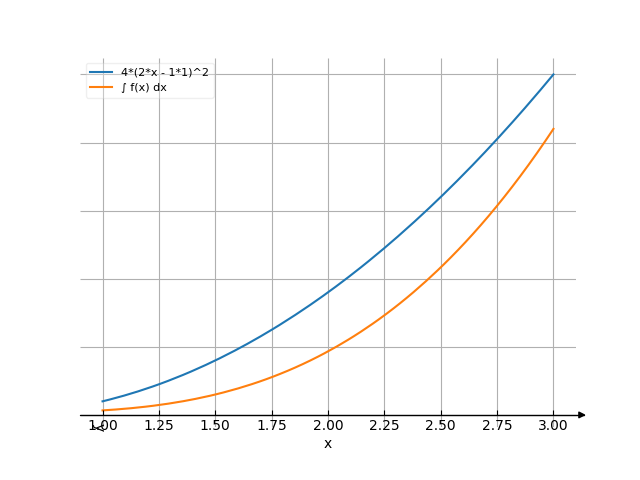Integral of 4(2x-1)^2 dx
The solution
3 / | | 2 | 4*(2*x - 1) dx | / 1
-
The integral of a constant times a function is the constant times the integral of the function:
-
There are multiple ways to do this integral.
Method #1
-
Let .
Then let and substitute :
-
The integral of a constant times a function is the constant times the integral of the function:
-
The integral of is when :
So, the result is:
-
Now substitute back in:
-
Method #2
-
Rewrite the integrand:
-
Integrate term-by-term:
-
The integral of a constant times a function is the constant times the integral of the function:
-
The integral of is when :
So, the result is:
-
-
The integral of a constant times a function is the constant times the integral of the function:
-
The integral of is when :
So, the result is:
-
-
The integral of a constant is the constant times the variable of integration:
The result is:
-
-
So, the result is:
-
-
Now simplify:
-
Add the constant of integration:
The answer is:
/ | 3 | 2 2*(2*x - 1) | 4*(2*x - 1) dx = C + ------------ | 3 /

Use the examples entering the upper and lower limits of integration.

![Find the integral of y = f(x) = 4(2x-1)² dx (4(2x minus 1) squared) - with detailed solution [THERE'S THE ANSWER!] 4(2x-1)^2](/media/krcore-image-pods/176/hash/indefinite/f/22/790fe90bc83915f5c11935e070b8e.png)
 Integral of 4(2x-1)^2
Integral of 4(2x-1)^2
 Integral of sin(4x^2)
Integral of sin(4x^2)
 Integral of (shx)
Integral of (shx)
 Integral of 1/(x^2+9x+20)
Integral of 1/(x^2+9x+20)